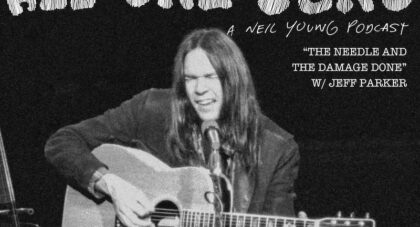In her new book, Riding With the Ghost, writer Erin Osmon accomplishes a tricky feat regarding the late Jason Molina, the songwriter and leader of Songs: Ohia and Magnolia Electric Co. She presents Molina, whose work can so often mythic, as if carved from ancient stone, fully as a person, with faults, desires, humors, and failings. She doesn't strip his songs of their mystery or allure, but rather illustrates the idiosyncratic and personal details that led to his remarkable words and melodies. In doing so, she . . .
Only the good shit. Aquarium Drunkard is powered by its patrons. Keep the servers humming and help us continue doing it by pledging your support.
To continue reading, become a member or log in.


